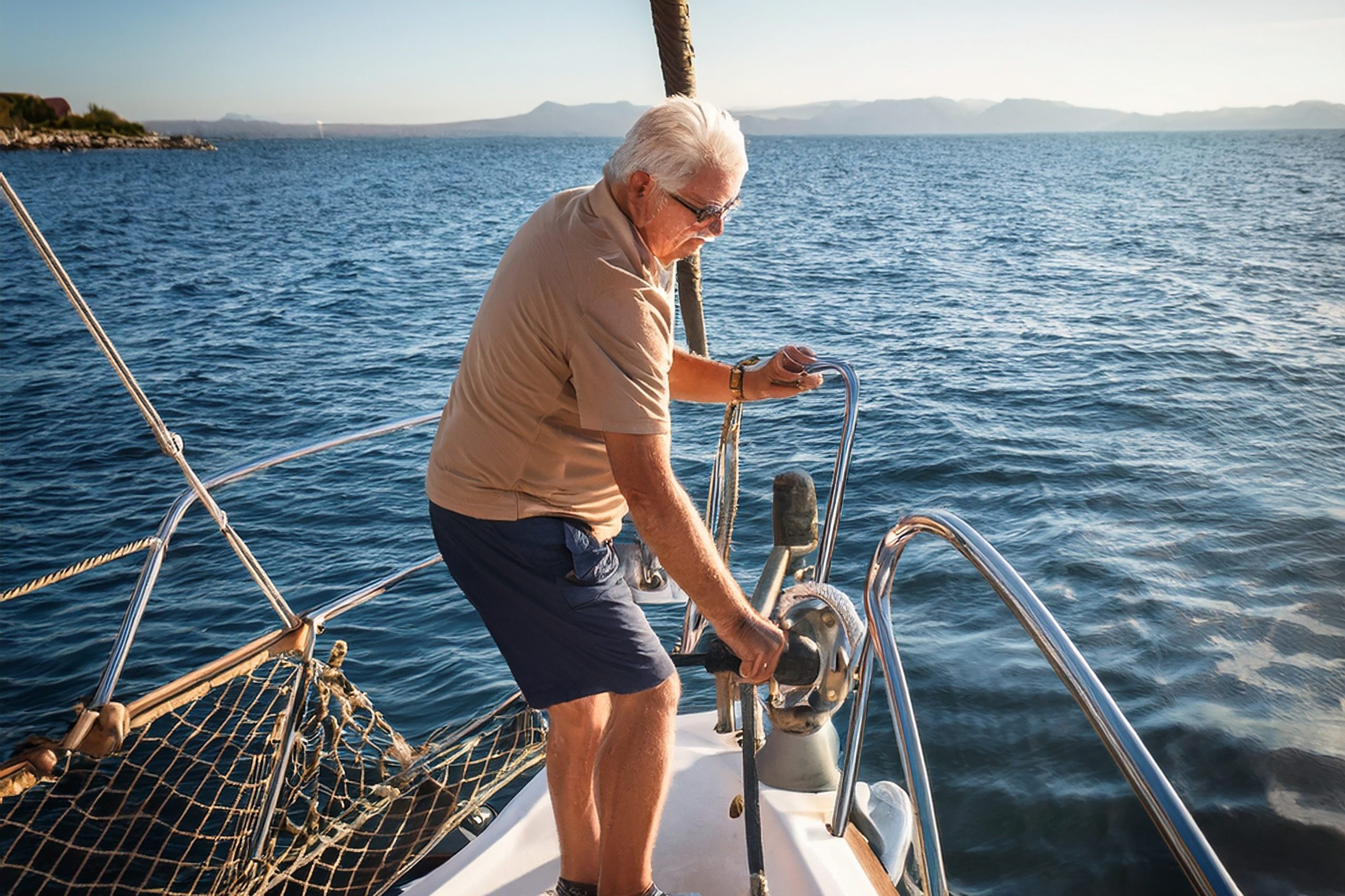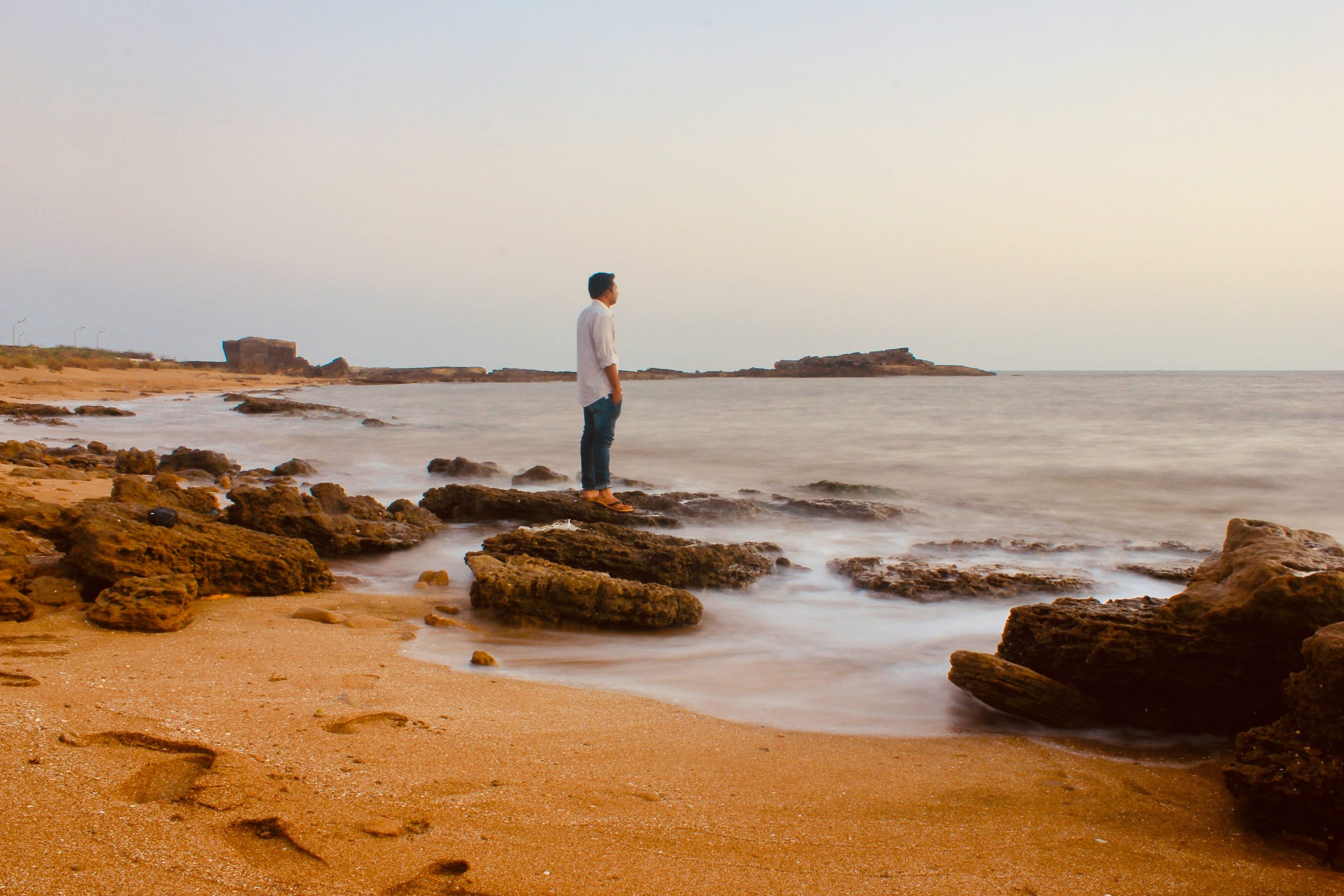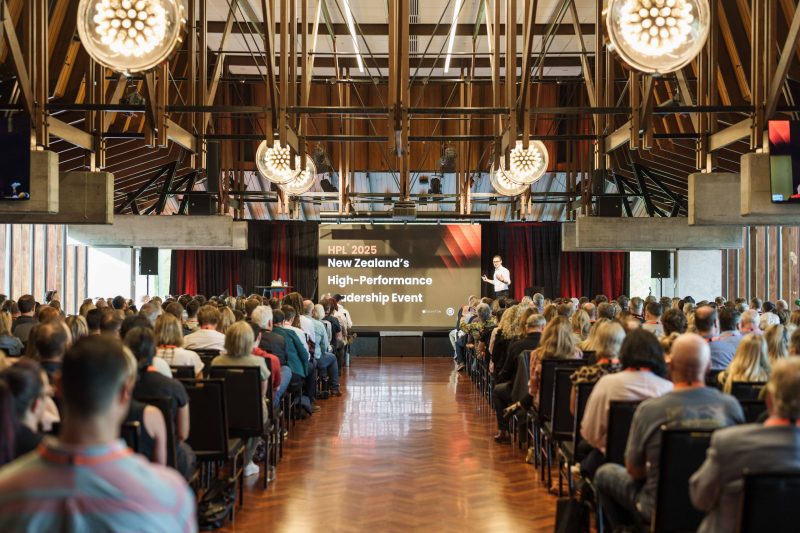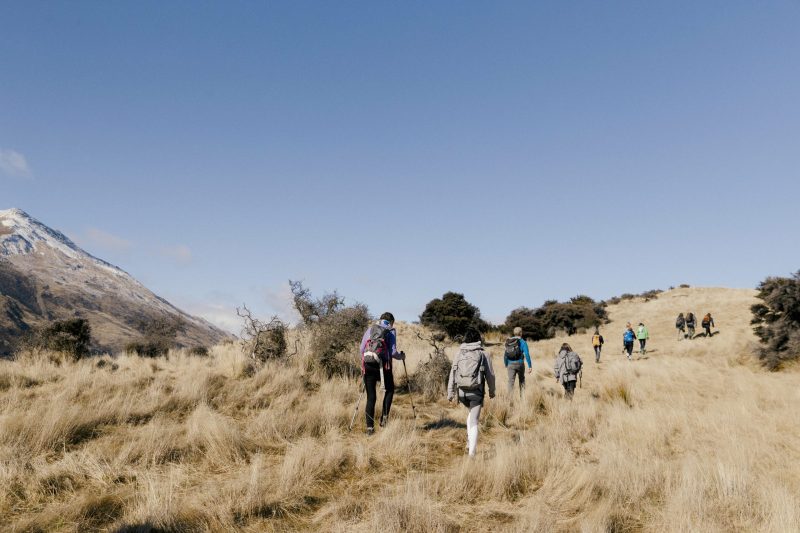Mental health: Breaking the stigma
They say your vibe attracts your tribe, and men’s mental health warrior Krissy Mackintosh’s tribe is growing by the day. Her methods may seem unconventional to some, but the results speak for themselves. By Rebecca Greaves. Photos by Tink Lockett.
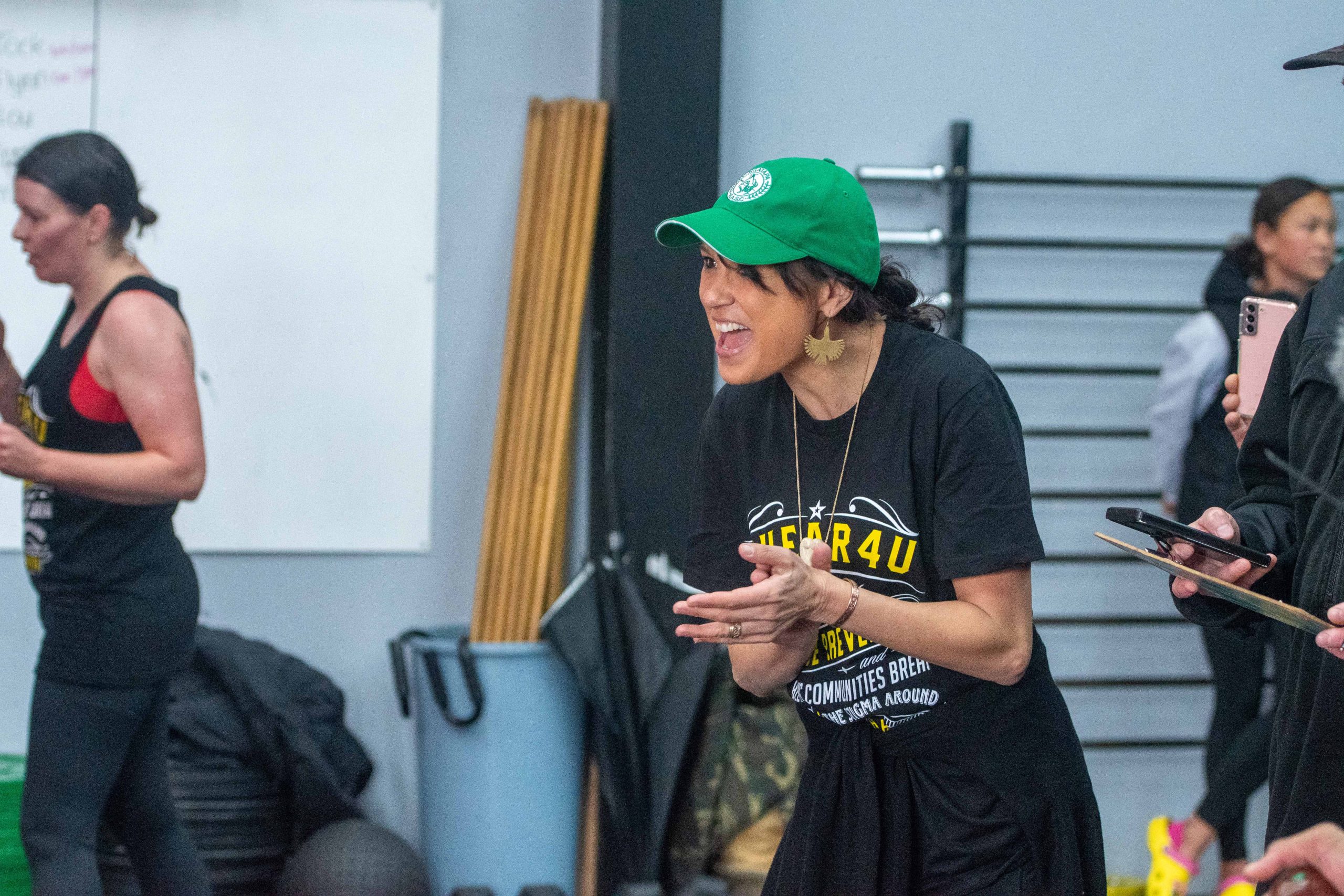
Krissy’s why is simple. Tired of losing good men, attending funerals for friends and whanau lost to suicide, she decided enough was enough.
Four years ago, she founded registered charity Hear 4 U, dedicated to breaking the stigma around men’s mental health and suicide prevention in her home region of Tairawhiti Gisborne. Her particular focus is on rural communities.
“It’s relentless. It’s a movement. I think the worst thing for people is to think, what the hell could I have done differently? If you hit it from a preventative space and you give it everything, there’s not much more you can do,” she says.
It’s difficult to put a finger on what makes Krissy special, and why people flock to her, supporting her cause. This diminutive pocket rocket is a force of nature, and she has an aura that attracts people, like moths to a flame.
Krissy battled her own mental health issues for more than 20 years. She suffered behind closed doors while her loved ones lacked the support and knowledge to help her through her battles with eating disorders, anxiety and panic attacks. She attempted suicide on more than one occasion.
It is this lived experience that makes Krissy so relatable. Her door is always open, and there’s no judgement here.
“It’s the loneliness I felt, from a personal perspective, struggling behind closed doors for so many years, and the loneliness my loved ones felt trying to support me. They just didn’t have the resources or education to help me. I felt isolated and unworthy of so much because there was no awareness around lived experiences when I was growing up.
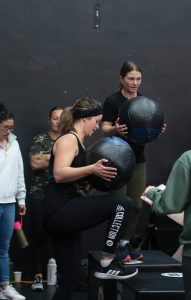
“I was in a dark hole and that lasted 20 years. Eating disorders, anxiety, panic attacks, suicide attempts. You can’t even focus on a conversation because you’re planning the next attempt, wanting to get out.”
But the most traumatic thing for Krissy was standing at the funerals of friends who had passed from suicide. “Mum and I did a tally the other day of people we have lost, and we stopped counting at 13.”
A small-town girl from Tokoroa, Krissy doesn’t have a farming background, but what she does understand is the struggle.
“The isolation is a big reason why. These farmers are so isolated, it’s important to come in every now and again to engage with your community. I was speaking to a farmer yesterday and I said, ‘if you hide in the hills, you are not sharing, and we’re not learning from you’.”
Krissy failed her second degree due to her mental health; she knew whatever she was doing, it wasn’t working. She decided to take some time out. On a whim, she pursued something she’s always had a passion for, floral art.
Her husband Mat was working in forestry at the time as a foreman. A forestry supervisor, Dan, had always been good to the family, somewhat of a mentor to Mat. Out of the blue they received a phone call that Dan’s son, Toby, had taken his life.
“The deluge behind his passing was massive. The community was in shock. I had seen it so many times before, it wasn’t new to me. I felt so frustrated. People could not understand, they didn’t have the support or education.”
Toby was the catalyst and Krissy decided to act, using her floral art as a platform.
She recruited 27 local men who she believed would be empathetic and mature enough to embrace her concept of putting on an exhibition to raise awareness around suicide prevention.
“What happened was we created a platform to talk about mental health in an uplifting way. Grass roots prevention is about getting out into their setting, engaging and making people feel safe. We went to them, we took the photos in their space and put the right support around them to speak up. And they had a laugh, because that’s important. Life is hard but we have to try to see the brighter side, even in the worst situation.”
All the money they raised went to Movember. At the time, it was the largest sum ever raised in Australasia for the charity. But it was a wakeup call – none of the money came back to Tairawhiti.
“I didn’t want to be a one-hit wonder and I started thinking, what other ways can we get them to engage and create awareness? I went in rookie as hell, I was green as green. There were so many obstacles and I was so naïve, but the boys here always supported me. It’s the community voices and input that have kept this going.”
Hear 4 U was created in September 2019 and became a registered charity in March 2022. The focus is specifically on Tairawhiti and they provide a tailored service for primary industry workers, tradies and rural whanau. They keep the momentum up year-round, with events like a golf tournament, the Taupo half marathon, Frocks on Friday and fitness challenges.
Hear 4 U operates on three pillars of mahi.
The first is based on pure prevention through community events and advocacy, the second is on providing healing pathways, which begins with an assessment with a lived-experience mentor. From there, men are offered a number of pathways from counselling to educational resources or a gym programme.
“Basically, I’m a navigator, so we stay with them on this journey for as long as they are committed.”
Finally, the third pillar is what Krissy calls post-prevention, which involves empowering the people around someone who is working with Hear 4 U. “In order to live a really good life, they need a support unit. This is education and advocacy with the whole whanau.”
For the first four years, the programme was completely funded thanks to community fundraising efforts. More recently, Hear 4 U has received some Government funding, particularly from the Ministry for Primary Industries.
The biggest challenge for Krissy has been her critics. She’s been told to stay in her lane.
“Because it’s such an innovative approach to mental health, the critics have been harsh. Cultural boundaries mean my world view has not been accepted by others.”
Krissy has a diverse background, with a Filipina mother and a European father. Raised among Maori and Pacific Islanders, she has a unique perspective and a ‘one size doesn’t fit all’ approach.
“It’s hard to get people to take me seriously. To be a woman of my stature, advocating for men’s mental health is unusual. I’m just the girl from Tokoroa, sick of seeing good men hurt. That’s been the hardest thing, people questioning my agenda.
“What keeps me going? Monday morning when my phone goes off time and time again and they say ‘I don’t know where to go. I don’t want to go to the doctor and I know you get it. I can talk to you and your team’. It sounds weird, but when they come through the doors – we celebrate that. If they don’t, what happens? I would hate to know.”
Krissy’s dream for Hear 4 U is to create have an inspiring hub for the Tane of Tairawhiti to come and engage, be respected and access the resources and mentors they need to live their best life.
“I don’t want to take over the world. I just want to leave this space for them and keep within our culture that’s iconic to Tairawhiti. Well-established, well-supported and well-funded. And community-led.
“I wear my heart on my sleeve, that’s probably not always the best thing. But I wanted to raise my children in a world where they can be themselves. I felt if I could create a platform like that, I could surround them with people who are authentically happy and themselves. I guess other people have gravitated towards that. I think about my dad and he said, you only have one life, so have a bloody good time doing whatever you’re doing. Just do it your way.”
Total annihilation
One of many Hear 4 U initiatives is the eight-week blokes and wahine wellness challenge. More than 200 people have completed the programme over the last two years.
Supported by local gym Primal Fitness, participants train two nights a week for eight weeks before undertaking the aptly named annihilation finisher, which pushes them to their limits physically.
The programme is funded by the Eastern Institute of Technology (EIT) and local businesses.
“The annihilation is a celebration of their commitment and hard work. Most of the people don’t know each other and the whole kaupapa is around getting out of your comfort zone and meeting like-minded humans in a safe and non-judgemental space,” Krissy says.
“The biggest success is not finishing the course; it is coming out and being vulnerable in a space like that.”
At the most recent annihilation, a group from the small rural settlement of Matawai travelled to town to take part. Trained by husband-and-wife team, Tess and ‘Cowboy’ Mark Shaw, the group did their community proud.
Mark and Tess are sheep, beef and deer farmers at Matawai. With no formal training in fitness and only basic equipment, they wanted to create something for their community, something they recognised they needed for themselves, too.
“Physically, but also mentally, I’m feeling a lot more clear-headed. It’s something other than just working, it’s a nice escape,” Mark explains.
“To be in the moment and be committed to what’s in front of you, it’s hard to put it into words,” Tess adds.
Of the Krissy factor, Mark says she makes it personal. “She makes everyone feel important and part of something so much bigger. She knows everyone and she’s just so invested in it, and every individual. She really cares.”
Tess says Krissy believes in everyone, and wants them to believe in themselves. “And I think people do, when they have someone like her backing them.”

